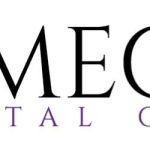How Often Should You Brush Your Teeth for Optimal Oral Hygiene?
- The Importance of Brushing Your Teeth Regularly
- Correct Brushing Frequency for Healthy Teeth
- Techniques for Proper Brushing
- Common Myths About Brushing Your Teeth
- Real-Life Examples: How Proper Brushing Frequency Makes a Difference







 Banyan Dental Care4.0 (90 review)
Banyan Dental Care4.0 (90 review) Associated Oral & Maxillofacial Surgeons4.0 (63 review)
Associated Oral & Maxillofacial Surgeons4.0 (63 review) La Cienega Dental Group4.0 (37 review)
La Cienega Dental Group4.0 (37 review) Affordable Dentures & Implants4.0 (855 review)
Affordable Dentures & Implants4.0 (855 review) Stephanie ML Wong, DMD, Inc.5.0 (1 review)
Stephanie ML Wong, DMD, Inc.5.0 (1 review) Omega Dental Care4.0 (74 review)
Omega Dental Care4.0 (74 review) The Importance of Oral Health Education During Pregnancy for a Healthy Pregnancy
The Importance of Oral Health Education During Pregnancy for a Healthy Pregnancy Best Tips for Brushing Your Teeth Properly for Healthy Gums: Essential Techniques for Oral Health
Best Tips for Brushing Your Teeth Properly for Healthy Gums: Essential Techniques for Oral Health Why Skipping Dental Checkups Can Lead to Bigger Oral Health Problems
Why Skipping Dental Checkups Can Lead to Bigger Oral Health Problems Advantages of Porcelain Dental Restorations
Advantages of Porcelain Dental Restorations How Can Diabetes Cause Tooth and Gum Problems? Preventing and Managing Oral Health Issues
How Can Diabetes Cause Tooth and Gum Problems? Preventing and Managing Oral Health Issues Healthy Habits for Promoting Good Oral Health and Hygiene: Tips for a Healthy Smile
Healthy Habits for Promoting Good Oral Health and Hygiene: Tips for a Healthy Smile